Survivor Profiles: Mark Weinberg
We have to teach. We have to tell everything we saw because when we die there will be no more witnesses … I am an eyewitness of the Second World War and the Holocaust ... I am living history.
Mark Weinberg
His Story:
Mark Weinberg was born in 1912 in Warsaw, Poland. He grew up in a very religious Orthodox Jewish family with six brothers and two sisters. His father was a businessman who made leather for shoe soles. When Mark turned 14, he chose to attend trade school to train as a mechanic and businessman.
Mark was a great sportsman: he participated in gymnastics, hockey, ice skating, motorcycling, and skiing in his youth. He also took up boxing to fight back against boys who would wait for Jewish boys to leave religious school to beat them up on their way home. He experienced a great deal of antisemitism in Poland, even before the war – so much so that most of his family moved to Palestine before 1939. Mark stayed behind waiting for a girl, but he was conscripted into the Polish army. He was wounded on his third day of combat during the Nazi invasion, and the Germans later captured him in a field hospital. However, Mark soon escaped captivity and returned to Warsaw.
As Jews were moved into the Warsaw Ghetto at the end of 1940, Mark was able to pass as a Polish Christian to Germans and as a German to Poles. He became involved with the ghetto’s underground organization, which provided him with fake identity papers. He often dressed like a German to smuggle and supplies food back into the Jewish ghetto.
In the end of July 1942, the Germans captured Mark and sent him to work in factories at Auschwitz as a Pole. Soon after, he was able to smuggle himself back to Warsaw. Later, Mark signed up to go work for the postal service in Vienna. There, he spied on train traffic and served as an informant against the Germans, but the gestapo grew suspicious and arrested him as a train saboteur.
Mark’s imprisonment during that time was very difficult. The gestapo severely beat him 11 separate times, and he eventually tried to commit suicide. Mark survived this attempt, though he carried its scar for the rest of his life. While in a German hospital, the doctors once again misidentified Mark because they thought that his light eyes and muscular build meant he could not be Jewish. He was sent to various jails and camps until he returned to Auschwitz in September 1943, this time classified as a Polish political prisoner.
This status meant that he was able to evade the crematoria several times and instead worked in the kitchen at Auschwitz. Working in the kitchen, he could eat enough to survive and help others with food. After that, the Germans moved him between work camps between 1944 and 1945, and he eventually ended up in Dachau. Americans liberated the camp in April 1945.
While he was in Dachau, an SS guard helped Mark survive by giving him extra food, shielding him from work, and smuggling out letters for him. After the war, Mark wrote to the American prosecution on the guard’s behalf, which helped secure his release. Mark stayed in Germany for seven years after Liberation, and he and the guard visited each other several times during this period. Despite all the Mark suffered during the war and the Holocaust, he continued to speak positively about those who helped him.
Mark moved to Landsberg am Lech after the war, where he helped train boxers from Warsaw who had matches with American and British soldiers. Eventually, Jewish Family Services helped Mark immigrate to Chicago. He went to school and learned a new trade, watchmaking, which was his career in Chicago for 25 years.
Mark became a founding member of the Holocaust Memorial Foundation of Illinois. He was a particularly active member of the Speakers Bureau, always ready to share his story with visitors and students across the United States and Europe. He would travel any distance or wake up at any hour for the chance to recount what he had lived through and prevent it from happening again. Mark passed away in 1999.
Learn More:
Oral history interview with Mark Weinberg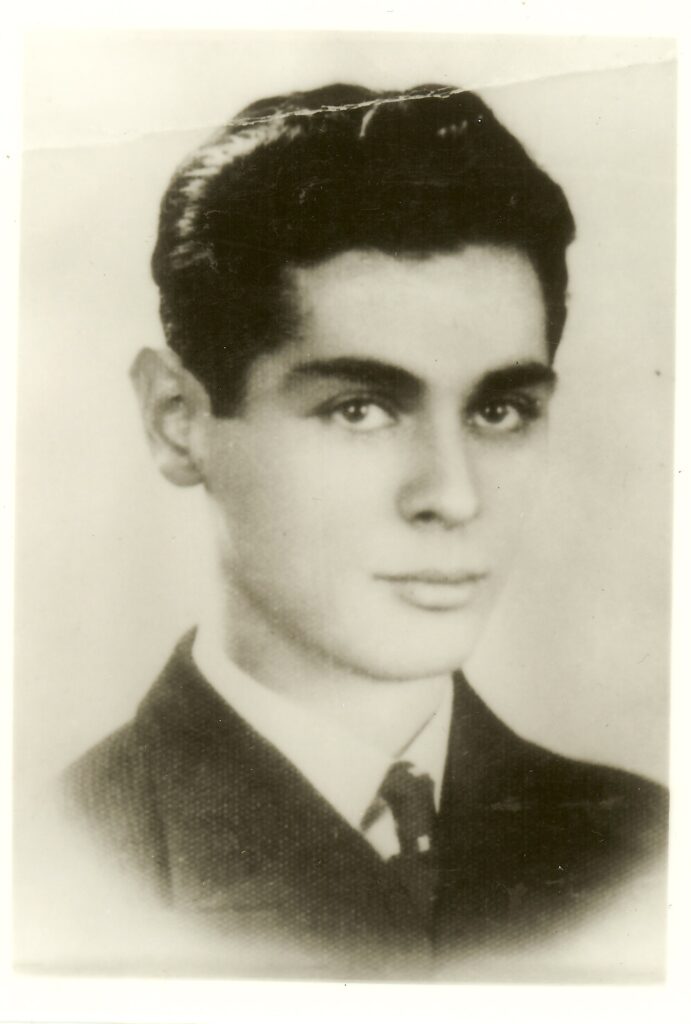
Mark Weinberg in Warsaw, Poland in 1936.
View this artifact >>
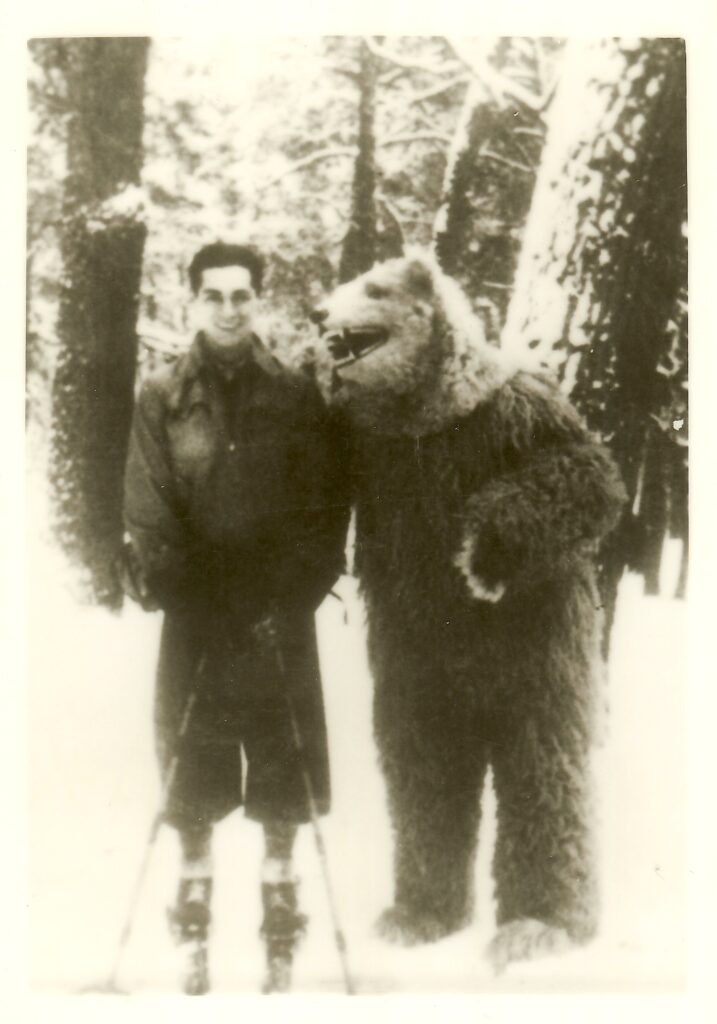
Mark Weinberg skiing in the Carpathian Mountains, Poland, 1938 with someone dressed as a bear. Mark served as a ski master in the polish army prior to the 1939 surrender.
View this artifact >>
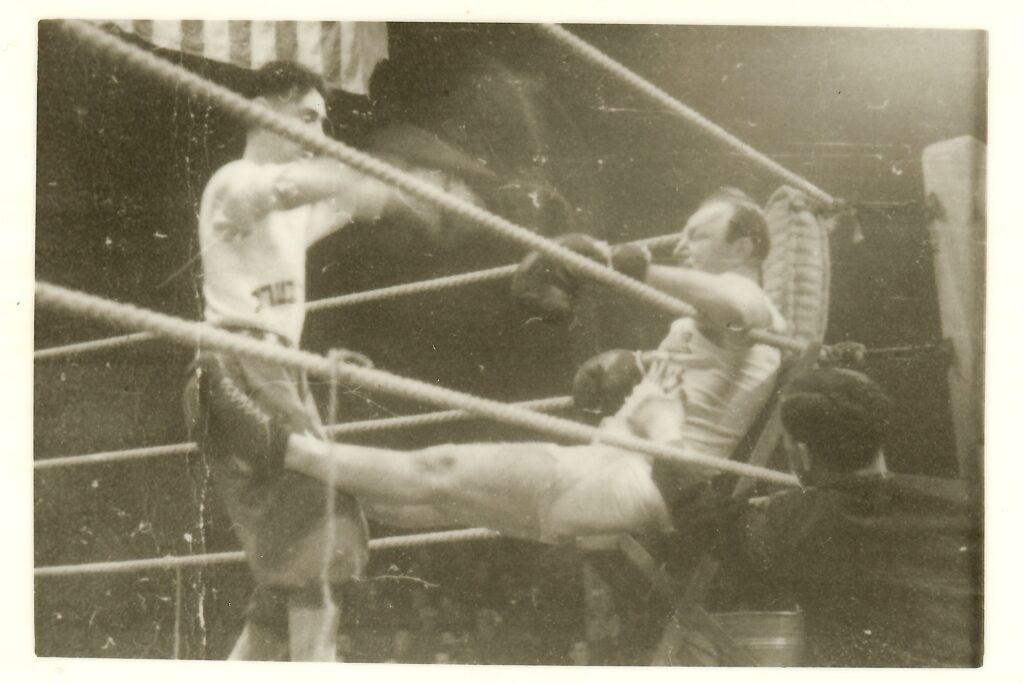
Mark Weinberg spent time as a boxing coach and organizer at Ichud Sports Club in Landsberg, Germany, November 1945.
View this artifact >>
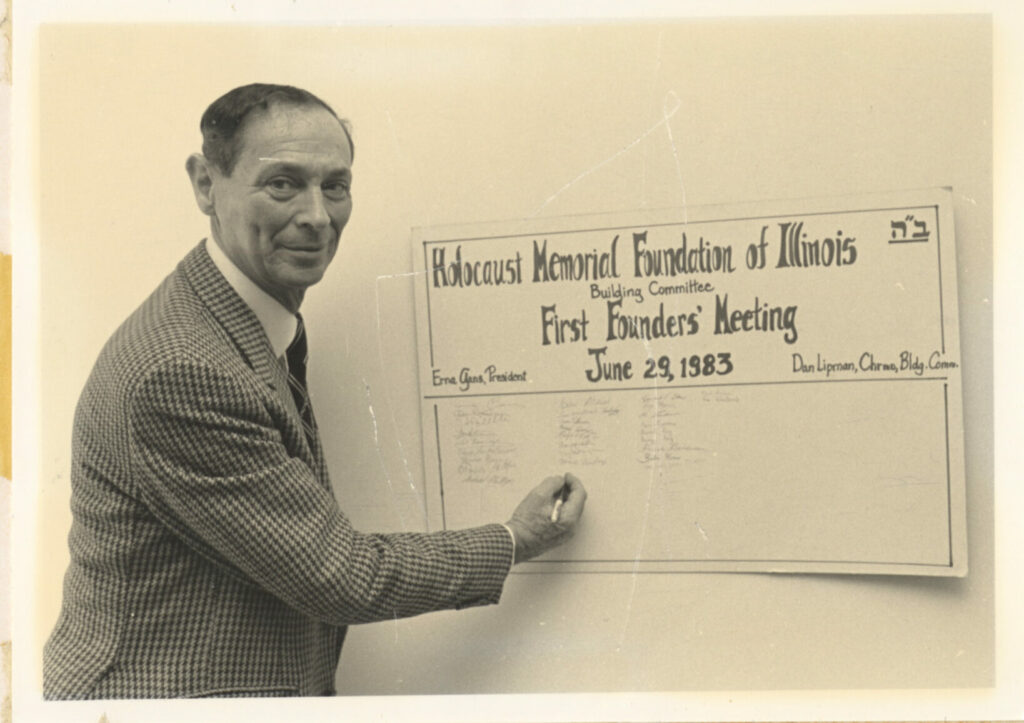
Mark Weinberg signs his name at the Holocaust Memorial Foundation of Illinois First Founders’ Meeting on June 29, 1983.
View this artifact >>
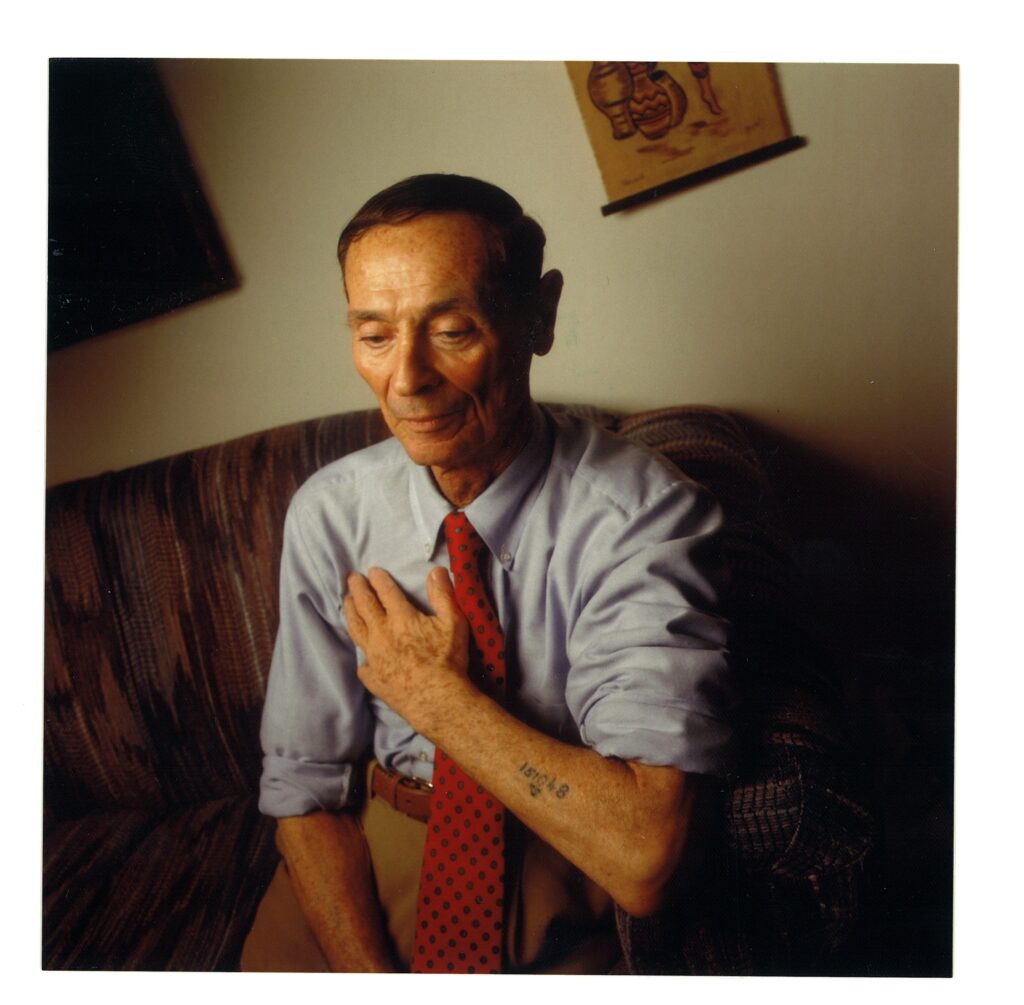
Mark Weinberg showing his tattooed number from his time in Auschwitz as a political prisoner. He often showed his tattoo and his striped prisoner jacket to students when he spoke.
View this artifact >>
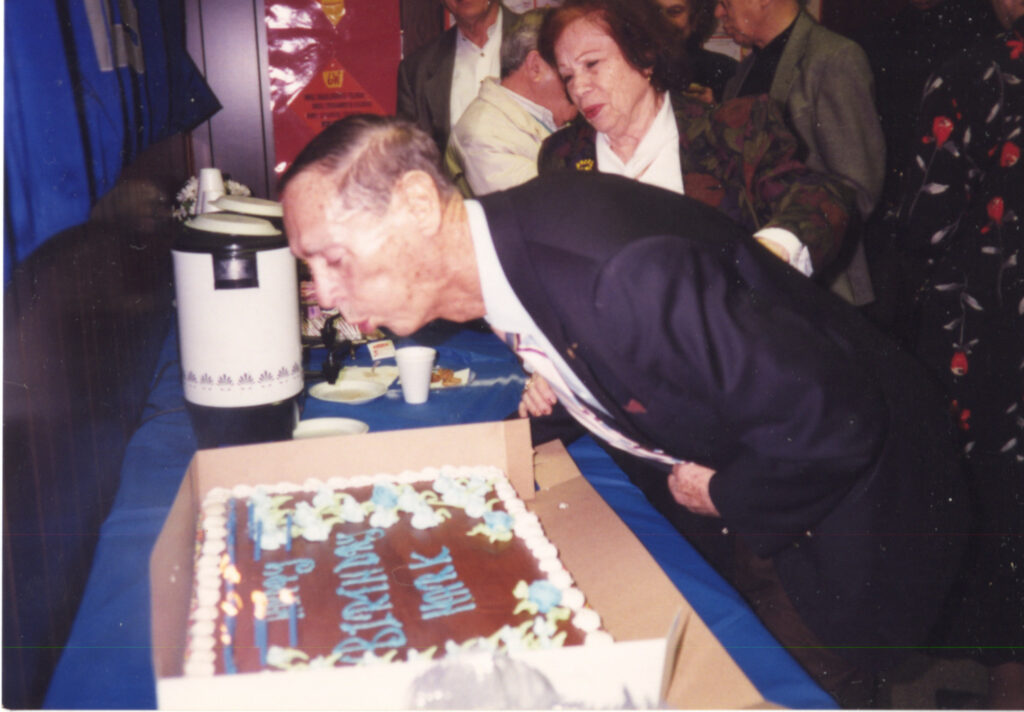
Mark Weinberg blows out birthday candles for his 87th birthday in 1999; he passed away later that year. Fellow HMFI founding member and survivor Bela Korn looks on behind him.
View this artifact >>
